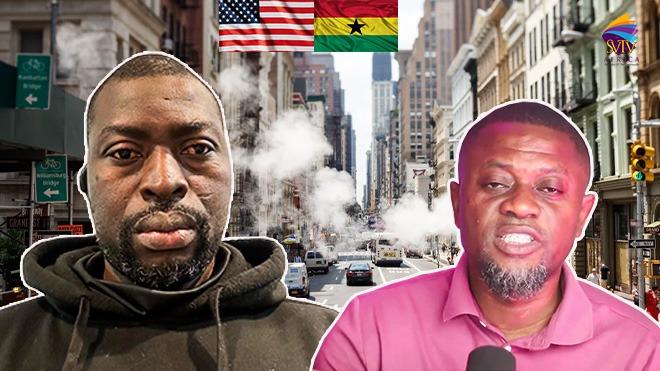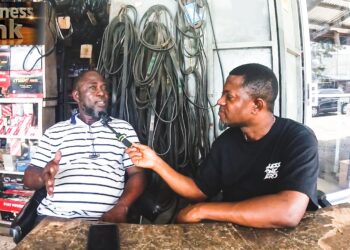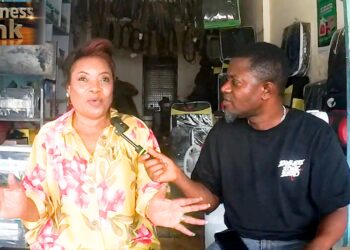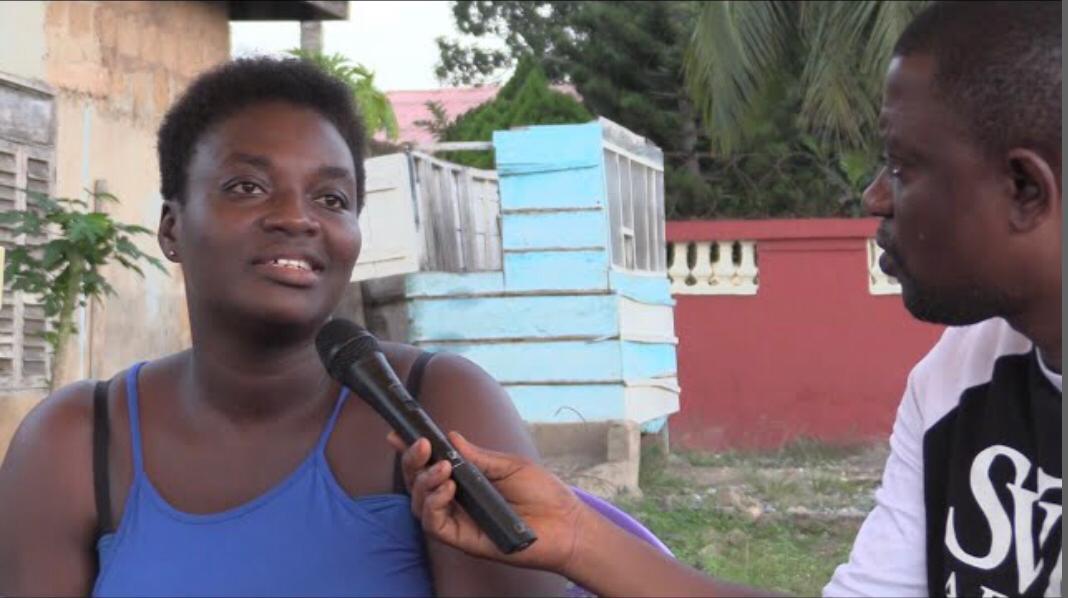Oluman on Trump’s Deportation List: “I’m Not Scared to Go Back Home; I Have My Business Running in Ghana”
Oluman, a returning guest on the Daily Hustle Worldwide show with DJ Nyaami, discussed the ongoing deportation situation in a candid chat. He acknowledged being on Trump’s deportation list but stated that he is not afraid.
“It feels like COVID times—before you know it, the situation spreads to different states. We are not scared; we are already on Trump’s deportation list. The only thing I hate is being handcuffed on both my legs and hands.”
Oluman has already planned his return to Ghana, saying:
“I have written down my return date to Ghana, but until then, I will wait for deportation if it comes. Some people sold their properties just to come here, and now they are facing these issues—it can be scary. But as for me, I’m doing business in Ghana, so I have nothing to fear.”
He pointed out that deportation efforts seem to be targeting specific individuals.
“They go to people’s addresses, and if you’re unlucky and they find you there, that’s it.”
Currently residing in Connecticut, Oluman monitors the deportations online and has even witnessed some cases firsthand.
“I’ve seen it happen in New York and New Jersey. I’m glad I left New York—I don’t panic anymore. Connecticut is calmer. People were advising me to move to the countryside, and it helps.”
He noted that many Ghanaians prefer living in New York, but residents there are especially frightened.
“I can’t believe they are paying people to give tip-offs. When you hear something like that, you start wondering if the person you’re speaking to might report you.”
To prepare for the worst, Oluman took a drastic step:
“I went to New York with all my money in my pocket, so if they arrested me, I’d at least be ready for deportation.”
He reflected on the reality that many immigrants tend to forget their roots until they are forced to return home.
“No matter what, you can never be the same as the white man. This is when people realize that they should have done something back home. The moment you return to Ghana, you’ll see that you need even more to sustain yourself. If you live in a country where you’re constantly in fear, how can you thrive?”
Comparing life in Ghana to the U.S., he noted that violence exists everywhere.
“Americans who come to Ghana often naturalize and say the country is peaceful. Meanwhile, there’s a lot of violence happening in America that Ghanaians don’t even consider.”
On the subject of immigration policies, he also mentioned:
“The German president is also planning to deport illegal immigrants.”
Oluman advised Ghanaians abroad not to speak negatively about their homeland.
“It’s good to travel and see the world, but don’t burn bridges. Many Ghanaians speak badly about Ghana when they are abroad.”
He explained that opportunities exist in Ghana for those who know how to leverage them.
“Most of the time, when you move abroad, you’re entering a country that has already been built. You have to work hard just to survive. But in Ghana, you can make your money work for you and travel for leisure instead of struggling.”
He also shared insights on business management:
“Even at the embassy, they assess your financial standing. Some people fear starting businesses in Ghana because they think competitors will sabotage them. But I’ve set up my business, and I make sure to hire both family members and outsiders while keeping a close eye on operations.”
Offering advice to those uncertain about investing in Ghana, he recounted meeting a young woman who had saved a substantial amount but didn’t know what to do with it.
“I advised her to start importing goods from China to sell in Ghana.”
For Oluman, living in America has been an eye-opener.
“My greatest achievement is that I have lived in the U.S. and learned a lot. Many old ‘borgas’ are broke. Instead of just building houses, invest in income-generating properties. Real estate and businesses bring money, not just owning a house.”
He acknowledged that expectations are high when one travels abroad.
“Whatever you experience overseas impacts your life. Someone once told me that when they removed medicine from a patient’s prescription, the weekly paycheck suddenly seemed too big for them to lose. So, they kept adjusting dosages just to keep their job.”
Reflecting on financial habits, he observed:
“Many people buy new clothes just to bring home, but they end up dressing poorly abroad. Some drive flashy cars, but they are bought on credit.”
He advised against trying to impress others back home.
“We often avoid telling the truth to people in Ghana so they won’t envy us. But the reality is, if you can raise $10,000 while living in Ghana, you have a bright future. Many people abroad haven’t even seen $10,000 in real life.”
Oluman expressed gratitude for not selling his properties before traveling.
“I thank God I never sold any of my properties before coming here. The deportations will definitely affect people. Those who own cars here spend a lot fixing them. If your car breaks down in certain cities, it’s expensive to repair.”
Finally, he made a striking statement about the U.S. healthcare system:
“Doctors are just waiting for you to get sick. They make sure the food here isn’t good so you’ll fall ill and visit hospitals.”
Watch The Video Below:
















